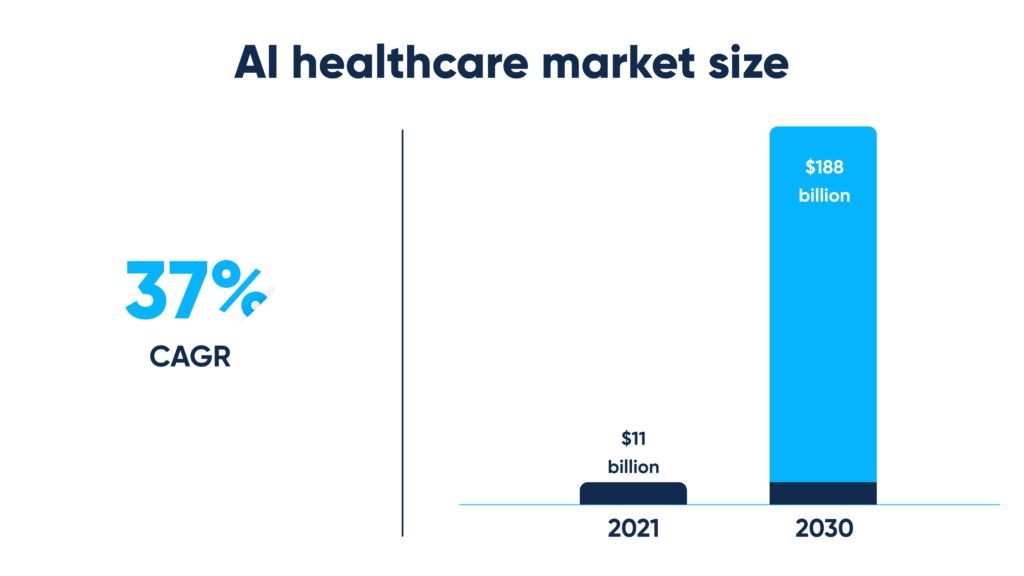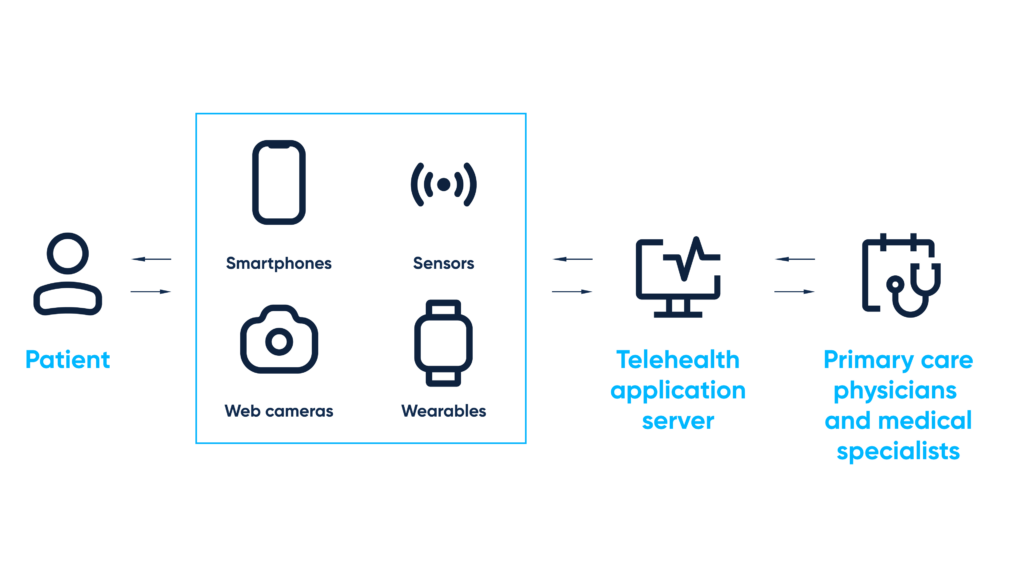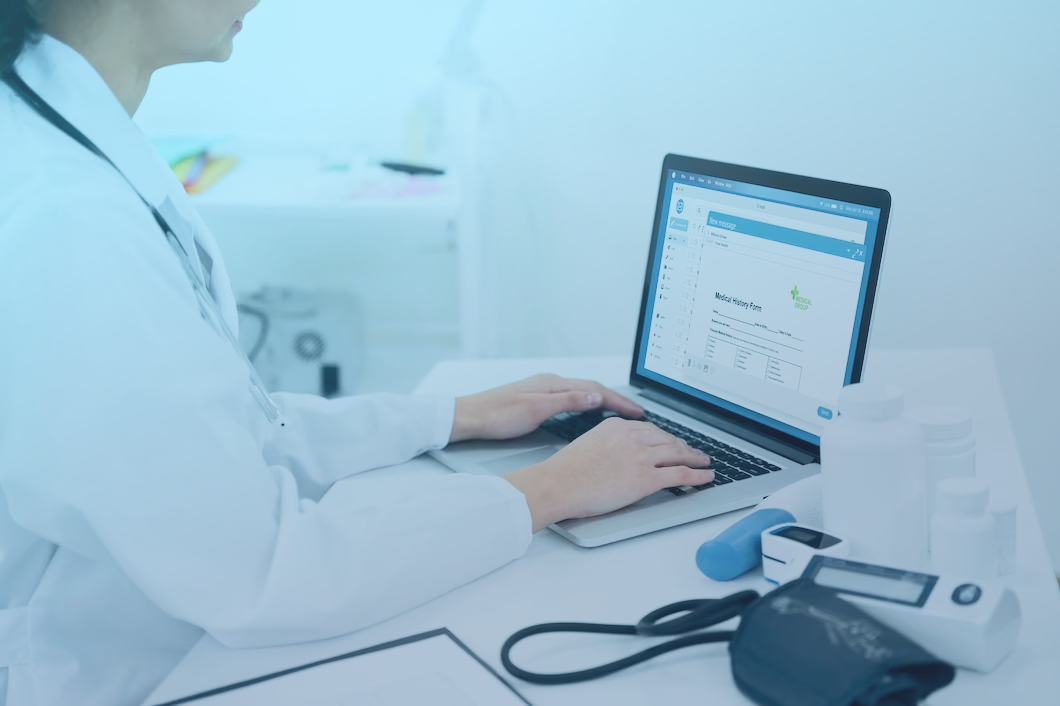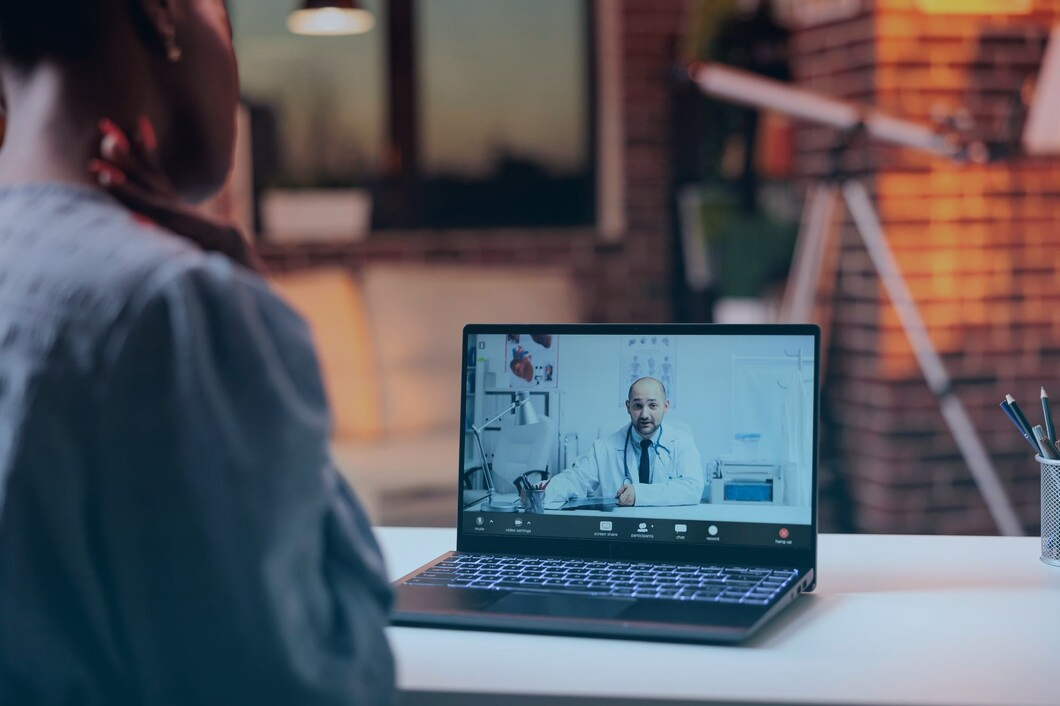Using AI to expand telemedicine capabilities

Before the COVID-19 pandemic, telemedicine services were already on a high note and are still continuing gaining momentum ever since.
As we were forced into quarantine, healthcare organizations and patients moved towards adopting digitization. Telemedicine applications became broader, more intuitive and interactive, and way more accurate and secure – a need that was successfully fulfilled by implementing artificial intelligence.
Market opportunities
During the coronavirus outburst, telemedicine technology became essential and proved its ability to facilitate healthcare delivery.
Healthcare facilities and individuals have realized the convenience telemedicine platforms bring to the table. Improving communication and collaboration, enhancing coordination, and expelling the exposure to danger, telemedicine solutions are ensuring healthcare accessibility and fostering care continuity.
- The global telemedicine market is projected to surpass $590 billion by 2032 due to raising expenses, user loyalty, and evolving digital innovation
- By modality, real-time technologies had the largest revenue in 2022 and are being projected to keep their dominance
As stated in the Statista Report:
- In 2021, the AI healthcare market was worth $11 billion
- By 2030, the AI healthcare share will be $188 billion all across the globe

Telemedicine explained
Telemedicine revolutionizes conventional approaches by delivering healthcare remotely utilizing technology. This includes secure messaging, audio- and videoconferencing, medical devices and sensors, patient portals, and more.
Telemedicine enables healthcare professionals to provide value-based services from anywhere and anytime. This includes condition assessment, diagnosing, treatment, progress tracking, and monitoring to ensure positive outcomes.

Back to the topic, how can artificial intelligence be applied to expand these capabilities?
Let’s have a look at the main opportunities computer intelligence brings to the table:
Artificial intelligence to complement telemedicine platforms
Remote patient monitoring (RPM)
AI algorithms can track vital signs – heart rate, blood pressure, oxygen saturation, and other relevant details – to analyze and interpret patient information from personal medical devices and identify abnormal patterns. This enables healthcare professionals to perform timely interventions and perform potential complications.
This way, healthcare-focused organizations might enjoy:
- Real-time data collection
- Automated data analysis
- Remote tracking
- Personalized recommendations and programs, and more
Natural language processing (NLP)
AI algorithms can transcribe and process both written and spoken patient information, including symptoms. This enables healthcare specialists to maintain consistent documentation and better context understanding skipping resource-intense manual workflows.
Using technology, healthcare-specializing companies might leverage:
- Record summarization to review relevant information
- Sentiment analysis to assess patient satisfaction
- Inquiry classification
- Code identification (for example, ICD-10. CPT)
- Documentation generation
- Context-aware responses and suggestions
Medical imaging
DL algorithms can detect and classify health abnormalities, including tumors, fractures, lesions, and others, accelerating accuracy.
In brief, AI supported medical imaging can provide:
- Image analysis and interpretation – computer intelligence can analyze and interpret medical images, detect abnormalities, and provide quantitative measurements
- Automated triage and prioritization – computational technology can triage and prioritize medical cases to ensure timely interventions
- Image enhancement – complex algorithms can enhance image quality by improving the contrast, increasing resolution, reducing noise, enabling clear structure visualization
Decision support
ML algorithms can generate evidence-based recommendations, streamlining accuracy and performance.
In particular, AI empowered decision support might enhance:
- Treatment planning – trained algorithms can analyze medical records, scientific literature, and guides to simplify treatment planning
- Custom alerts – trained algorithms can analyze potential interactions and allergies and provide customized alerts to notify medical personnel
- Clinical rules – artificial intelligence can assist in applying clinical rules to facilitate accurate planning
Virtual assistants and chatbots
AI supported virtual assistants and chatbots can be successfully integrated into existing telemedicine platforms to improve patient experience and loyalty.
This accelerates:
- Patient triage – modern tools can use advanced techniques to asses patient concerns and conditions
- Appointment management – those tools can handle session scheduling, rescheduling, cancellations, and reminders to minimize administrative burden
- Information retrieval – quickly processing medical databases and cross-checking knowledge bases, virtual assistants and chatbots can provide appropriate answers to received patient queries
Pose detection
AI enabled pose detection along with audio- and videoconferencing capabilities can be smoothly implemented to assess body posture, positioning, orientation, and other relevant details to provide remote assessment.
This way, innovation streamlines:
- Exercise guidance – AI-based pose detection provides motion analysis, useful feedback, and guidance, helping individuals to ensure correct technique
- Performance analytics – AI-enabled pose estimation provides objective measurements on performance, helping physicians to optimize patient outcomes
- Progress assessment – CV algorithms can track body movements to enhance progress monitoring, problem identification, program adjustment, and engagement
Implementing AI physical therapy, for example, might improve conventional physiotherapy and rehabilitation, sports training and coaching, workspace ergonomics, fitness, wellness, and many other domains.
Physical therapy AI complementation might revolutionize traditional assessment and treatment by replacing bulky equipment (markers, sensors) and enabling remote monitoring.
Predictive analytics
By analyzing structured and unstructured data – personal information, patient demographics, medical history, lifestyle factors, and other – AI algorithms can identify those individuals at risk of developing certain conditions. This allows healthcare providers to implement preventive measures and create personalized programs.
Fraud detection
By processing large amounts of information – personal records, billing information, and more – AI algorithms can identify suspicious patterns and anomalies that indicate fraudulent activities such as unnecessary services. This way, healthcare providers can minimize financial theft and ensure financial sustainability.
Why use artificial intelligence to expand telemedicine platforms?
Empowered through computational technology, healthcare providers might leverage:
- Reduced time and cost – AI-enabled automation can optimize resource utilization, eliminate errors, and, naturally, minimize overall healthcare expenses
- Increased efficiency – AI-enabled capabilities can handle administrative processes, simplify workflows, and, accordingly, minimize daily administrative burden, which allows healthcare professionals focus on patient-first care
- Enhanced diagnostics and treatment – AI algorithms can optimize patient diagnostics and treatments, accelerating overall patient outcomes
- Data-driven decision-making – AI tools can analyze voluminous data to identify important tendencies, streamlining evidence-based personalized care
With access to value-added, telemedicine applications, patients enjoy:
- Healthcare accessibility
- Personalized programs
- Timely interventions
- Faster recovery
Main challenges to consider
Security vulnerability
Telemedicine platforms that utilize artificial intelligence are gathering and processing personal information. The integration introduces additional security vulnerabilities – data breaches, unauthorized access, and others.
It’s essential to implement security measures, including encryption, access controls, and regular security audits to safeguard patient privacy and maintain system integrity.
Ethical concerns
It’s crucial to balance advanced capabilities and continuous human oversight to maintain ethical standards:
- One concern is the responsible utilization of data, ensuring privacy, patient consent, and protection
- Another concern is the involvement extent to which the technology should affect important processes, in particular in complex medical diagnoses and planning
Handling integration
During integration, there are several aspects to consider, in particular:
- Data collection and management
- Data quality and preprocessing
- Model development and validation
- Model integration with already existing systems
- Software interoperability
- Continuous evaluation and improvement
Another aspect worth mentioning is the regulatory compliance, which includes:
- Data privacy and protection
- Data sharing and interoperability
- Healthcare regulations (HIPAA, GDPR, and others)
- Liability and accountability frameworks
- Consent policies
- Security policies and protocols
How we can help
Abto Software delivers applications that empower healthcare organizations to provide value-added services. Our experts harness innovation – artificial intelligence, computer vision, data science, data mining, and more – to help business leaders scale faster.
We provide full-cycle services to strategic healthcare providers, in particular:
- Full-cycle custom software development
- Technology consulting
- Telehealth solutions
- Telemedicine applications
- Data warehousing
- Third-party & personal medical device integrations
- AI modules to expand healthcare capabilities
- Legacy modernization to optimize healthcare performance
We leverage advanced technology to deliver value-added products such as:
- AI based pose estimation for remote physical therapy – movement analysis for telerehabilitation
- CV enabled jump recognition and analysis – sensorless human motion detection
- CV supported self-diagnosis application – markerless human pose detection
- CV-based application for precise blood recognition and analysis
- Computer vision to drive medical imaging
- Computer vision to empower fall detection for video analytics platform


